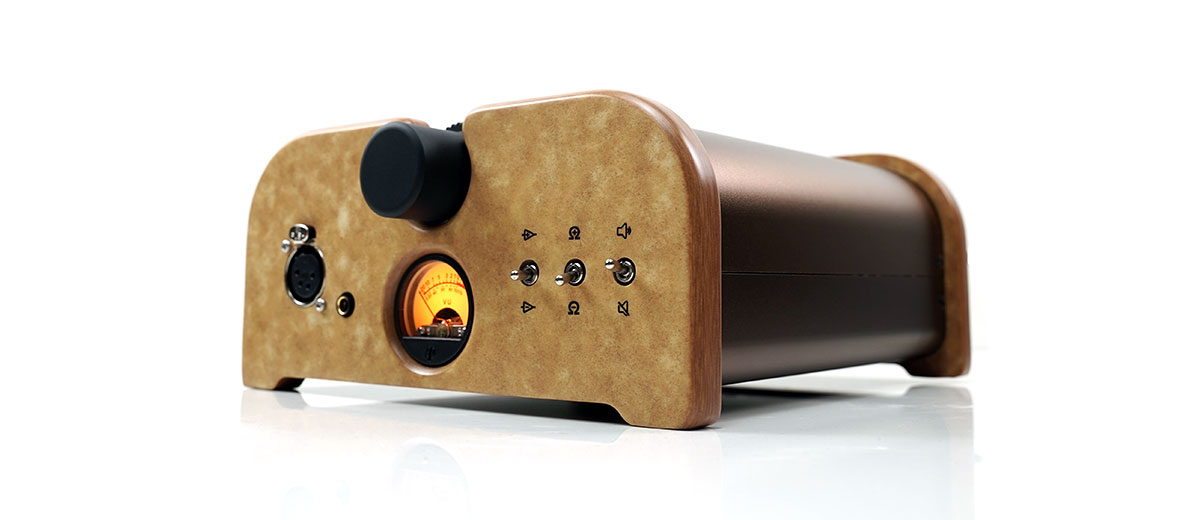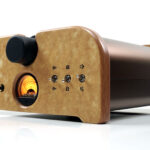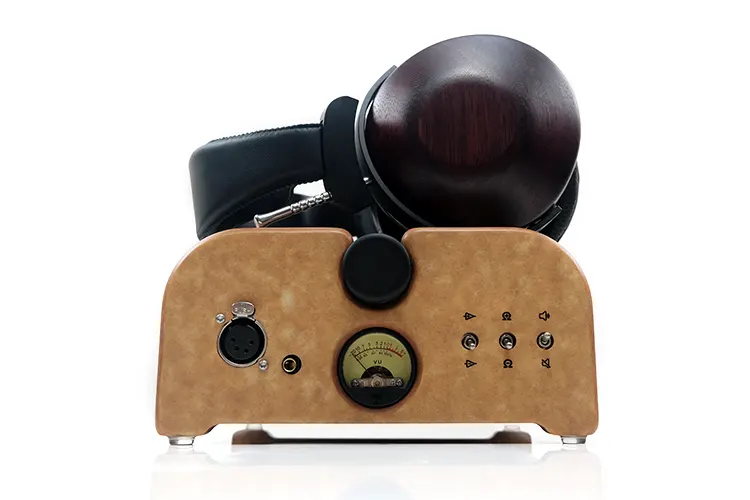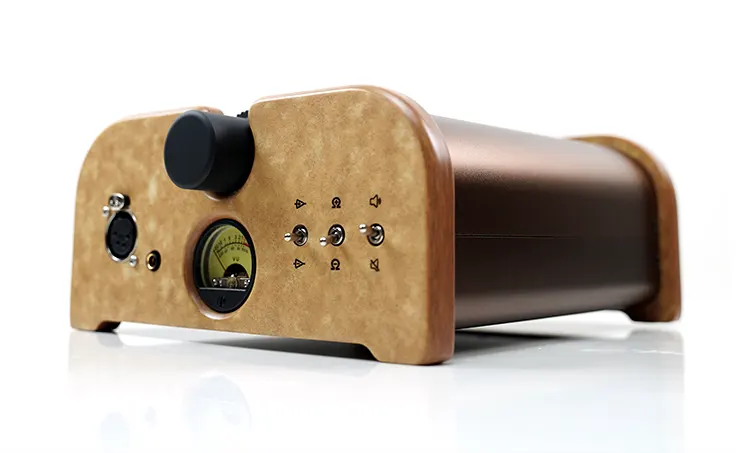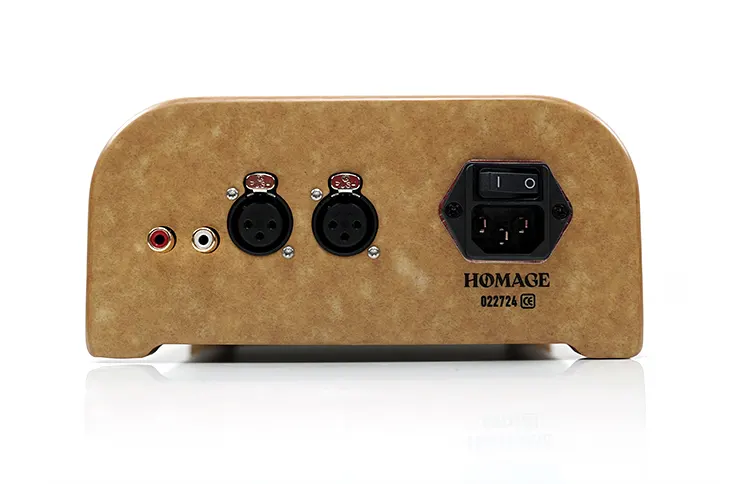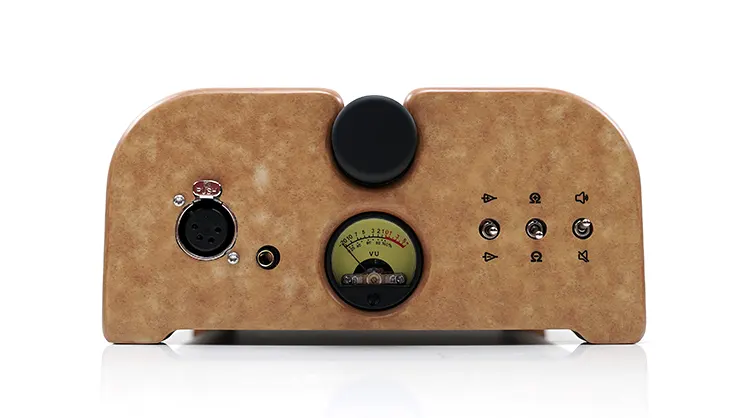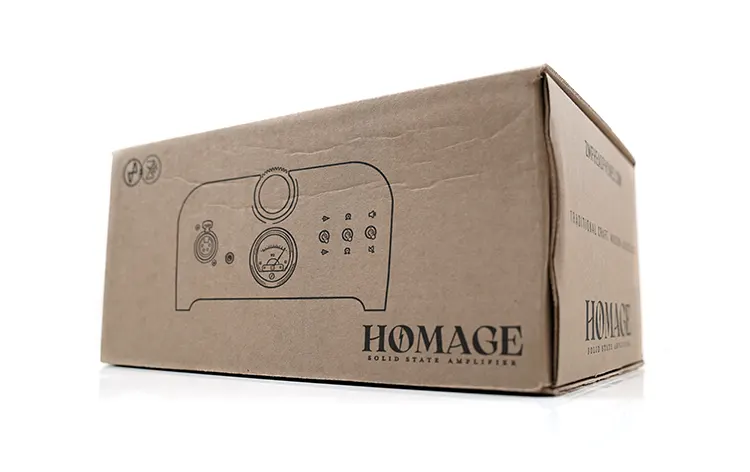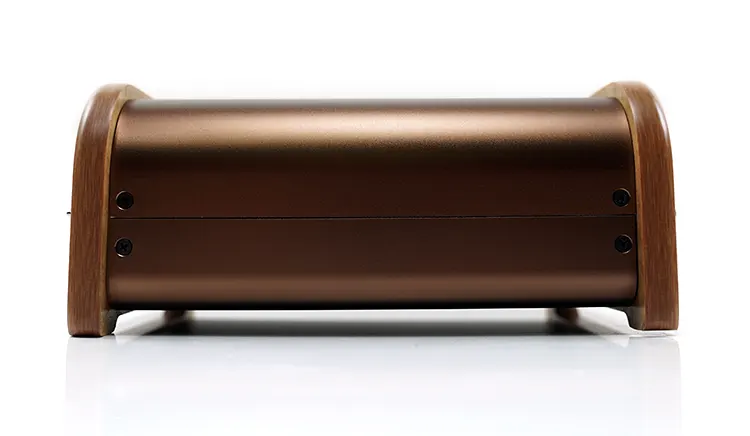Today, Marcus reviews the ZMF Headphones HOMAGE, a boutique desktop headphone amplifier with up to 2.2W of balanced output power. It is priced at $1199.99.
Disclaimer: This sample was sent to me in exchange for my honest opinion. Headfonics is an independent website with no affiliate links or status. I thank ZMF Headphones for this opportunity.
You can click here to learn more about the ZMF Headphones products I have previously covered on Headfonics.
Note, that this article follows our latest scoring guidelines which you can read in more detail here.
ZMF is primarily known for its excellent headphones but has also collaborated on a few amplifiers such as the Pendant in 2016 and, more recently, the high-end Aegis, which we will review shortly.
The HOMAGE is designed in collaboration with fellow Illinoisans JDS Labs and it is a bit different, at least compared to what has come before.
This is a solid-state design as opposed to tube-based (OTL or SETA) variants and is relatively affordable at $1199.99. It was also tastefully engineered as a ‘homage’ to vintage equipment with a unique aesthetic that stands out from the crowd.
The HOMAGE delivers plenty of power for a wide range of headphones and a sound signature that I would describe as possessing great staging depth and weight with a natural to neutral tonal quality.
Features
The ZMF Headphones HOMAGE is a balanced-engineered Class AB solid-state headphone amplifier with a single-ended output.
It is designed with a quad-balanced input stage or twelve OPA1656 opamps at 6 per channel, two OPA1656 for its gain stage, and four LME46900 for its output buffer at 2 per channel.
The HOMAGE output power is competitive though by no means class-leading at a maximum of 2.2 W on a 32Ω load dropping to 475 mW on 150 Ω and 119 mW for a 600Ω load.
This power curve will suit many modern planar headphones and lighter-load dynamic driver alternatives such as the recently reviewed BOKEH.
I still think high-impedance headphones such as the Atrium and Atrium Closed sound good on the HOMAGE but I still favor stronger voltage-biased OTL tube amplifiers such as the Feliks Audio EUFORIA evo or ZMF’s own Decware.
An indication of this flexibility comes from the HOMAGE’s 2-stage impedance selection which allows you to manage output impedance between low and high at 0.7 Ω and 47 Ω respectively. That low output impedance also means IEMs are valid options with this amplifier.
If you need more gain headroom then the HOMAGE can deliver that with a 3-way gain stage delivering up to 4.3x the voltage level at its highest setting.
Design
With a mix of machined coffee gold or black aluminum and an attractive Richlite wood panel finish in two color options, Heritage and a maple Pioneer (our sample), the HOMAGE aesthetic is very much a boutique interpretation of a pre-war era design language.
I know Zach has referred to this as something akin to an old-school flight deck instrumental panel such as a Sopwith Pup but my first reaction was that it looked more like a flattened 1920s cathedral radio receiver or an interpretation of a 1940s Riga VEF radio receiver.
Either way, it’s an old-school look, almost inviting a “Are you sure this isn’t a tube amplifier?” response even though the innards are solid-state.
It’s not a big or heavy amplifier at 4lb and 9″ x 7.5″ x 3.75″. I would class it as a compact desktop with just enough space to stack a lightweight headphone stand or a small DAC on top similar in size to a Chord Electronics Qutest.
My only critique of the design is the extended wood-finished stabilizing pillars (one on each corner) and their slightly imperfect sizing making it less stable than machined screw-in metal pillars or rubber feet on a flat aluminum chassis.
I suspect ZMF is aware of this with 3M blister pads included in the box. When stuck on the four corners of the HOMAGE it had a steadying effect with improved grip but still not perfect.
I/O
The HOMAGE has a very simple rear panel for I/O with no provision for pre-amplification and thus no output stage. This is purely an input stage with single-ended RCA on the left and dual 3-pin XLR on the right.
Perhaps of more interest is the front panel which has no single-ended PO outputs, omitting 6.35mm and 3.5mm in favor of a 4-pin XLR and a 4.4mm Pentaconn output.
I am guessing this is just a sign of the times assuming that most audiophiles in the headphone space prefer balanced cables. It is not always the case but since it is a single-ended output stage you can stick on a balanced to SE adapter and you are good to go.
Controls
There is more than a hint of the Objective2 design language in the iconography above the mechanical control suite on the front panel of the HOMAGE. I would recognize those images anywhere.
If in doubt or you have never seen them before they represent the 3-stage gain selector to the left, the 2-stage impedance switch in the middle, and a mute on/off to the right. They produce a very satisfying old-school mechanical sound when pushing those switches up and down.
Down the middle, the HOMAGE has a functional analog VU meter which lights up when the amplifier is turned on (from the rear) and a very smooth and evenly balanced Alps 27mm potentiometer finished in black with a grippy extension on the top for one finger movement.
If I had a criticism of the HOMAGE pot it would be the lack of external markings. I would prefer to see some markers on the dial to denote volume levels which would help with fine-tuning and memory retention.
Packaging & Accessories
The HOMAGE packaging is nothing overly intricate though the outer artwork on the packaging matches the retro-vibe somewhat. When all is said and done it is still a compact little ‘Hifi’ brown box with some inner protective custom foam to carry the amplifier.
You do get a nice little black drawstring pouch though for the amplifier which I find useful for dust protection when the amplifier is not in rotation.
The HOMAGE has a universal voltage input system with a 25w power supply inside which saves on additional power bricks or country-specific transformers.
The amplifier comes with a single power cable so your only choice at the website checkout to make for power is the type of IEC Connector (plug) you want for plugging into the mains.
You also get a set of 3m blister pads which, as mentioned, are provided to stabilize the HOMAGE wood feet on slippery surfaces.
Sound Impressions
The following sound impressions of the ZMF Headphones HOMAGE were completed using a mix of the Topping DX9 DAC’s fixed voltage balanced line out with an I²S input from a Cayin N7 and a direct balanced lineout, also from the Cayin N7.
Summary
The HOMAGE is a ‘big-sounding’ solid-state headphone amplifier. That means it delivers an expansive and deep presentation with good control with almost every headphone or IEM I tested.
Absolute staging width and extreme instrumental separation were only bested by the Topping DX9 PO in this price category during my test.
It is also a natural to neutral-sounding amplifier and the degree to which it moves between the two descriptors is based in part on the DAC you connect it to.
For example, paired with the DX9 as the DAC, I heard a stronger level of upper-order harmonic influence on percussion and vocals with the Caldera Open than from the same pairing using the lineout from the Cayin N7.
That is important because the amount of note body through the mids and into the highs reduces slightly from weighty and warmer to cleaner and more neutral sounding.
If you feel the tonal quality and note weight from your paired headphones such as the Caldera Open are starting to sound a little lean and edgy then choosing a smoother DAC such as the N7 can mitigate those concerns.
The lows of the HOMAGE are excellent. There is plenty of thrust with excellent sub-bass reach, more so than the Gustard H26 and the Topping DX9. There is a degree of warmth there so it’s fuller-sounding than I expected but still with excellent control and definition.
This is a great match for the BOKEH, Caldera Closed, or any closed-back headphones with a good bass response such as the DCA E3. The HOMAGE’s open sound combined with a decent tonal contrast creates a stronger holographic presentation than I expected, a quality that benefits those aforementioned closed-backs.
Coloration
I did not find the HOMAGE coloration overly smooth or lush but neither was it an analytical dry tone, at least when I did my comparison work on page 3 of this review.
The HOMAGE’s fundamental frequency reproduction with various headphone pairings was probably my favorite aspect.
It felt firm and weighty, with a slight amount of warmth but not too much bloom or flabbiness with my tested Synth Wave recordings such as The Encounter’s “Bad Mood”, an expansive but very deep-sounding track.
This song needs lots of space and control in the lows to deliver an accurate sense of scale and the HOMAGE did very well in that regard.
Some headphone amplifiers such as the H26 and DX9 are somewhat punchier and perhaps even more resolving but gave me a subjectively flatter tone on the sub-bass, generating less reach from the same headphones.
Where there is critique it’s in the vocals and upper-mids where DAC matching plays a significant role also. I had started with the DX9 as my main DAC but switched to R-2R or the Cayin N7 over time due to the slightly leaner note weight and a harder edge to percussion instrumentation from the HOMAGE.
This effect played out on most of my pairings and only became advantageous if the paired headphones or IEM were too warm and bloated sounding, to begin with.
An analog or warmer DAC resolved most of my concerns there but if you are coming from a tube amp the HOMAGE will not be as saturated sounding through the mids and highs with a higher level of bass and treble contrast in the overall coloration.
Staging & Dynamics
The HOMAGE projects a very pleasingly open and relatively holographic soundstage with strengths in depth and height.
I have heard wider such as the DX9 and the H26 as two examples, but neither of them delivers the same excellent depth and sense of scale that the HOMAGE can project.
I heard mention that Zach wanted the HOMAGE to have some tube traits in a solid-state format and indeed this macro staging quality is one of them.
There are some traits I hear at play with the tuning to generate that perception of staging space. The HOMAGE does seem to relax the positioning of the mids and treble imaging relative to the lows leading to vocal placement noticeably further away.
You only notice that once you start comparing amps with the same headphones. For example, the Austrian Audio Full Score One and the H26 are more neutral in their imaging with a more intimate vocal delivery.
If am being balanced in my critique the HOMAGE’s macro seems to have more priority over the micro. Such an expansive soundstage can at times mean nuanced detail is not as immediately obvious as it is on alternative amps that have a stronger midrange focus.
Click on page 2 below for my recommended pairings and selected comparisons.

